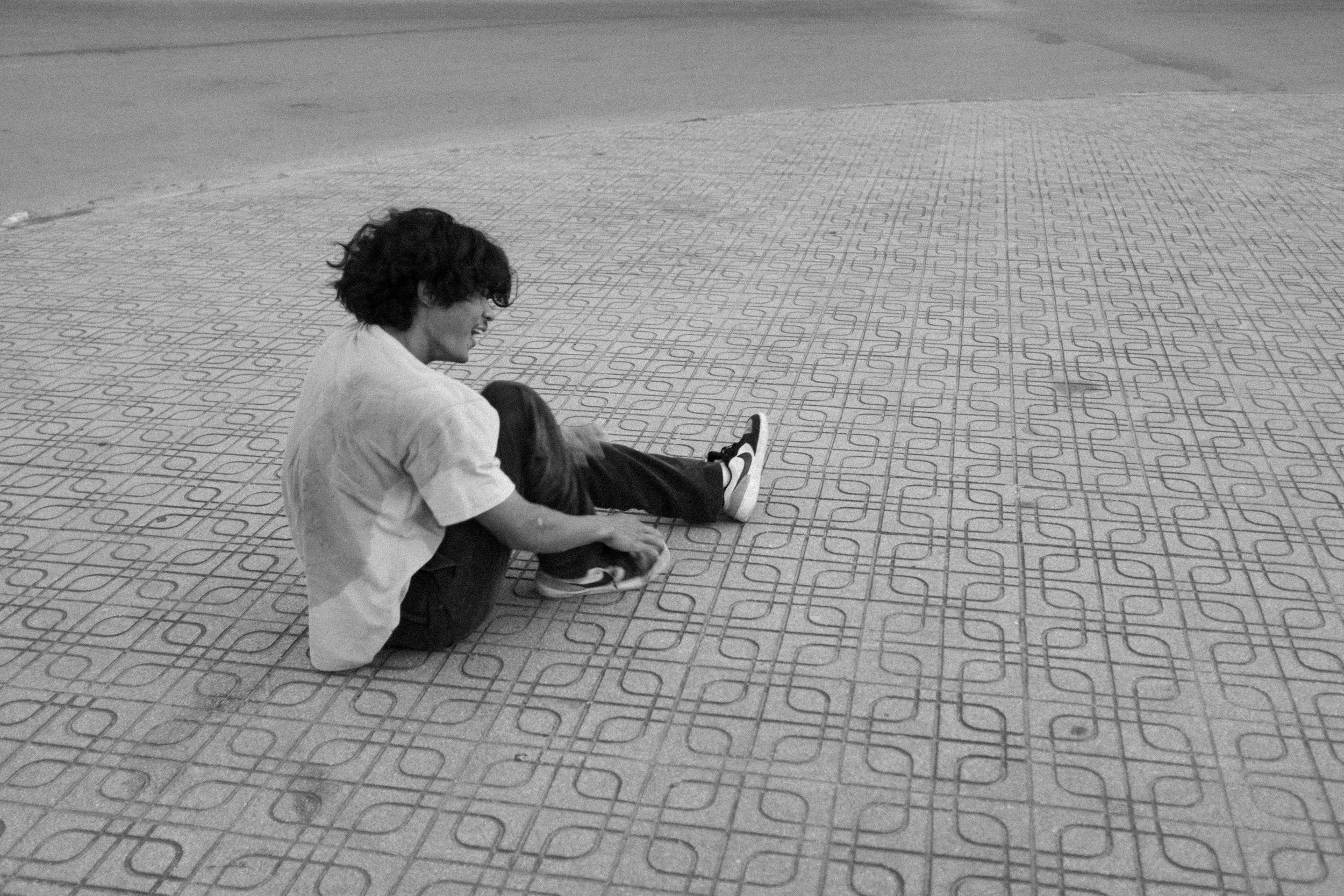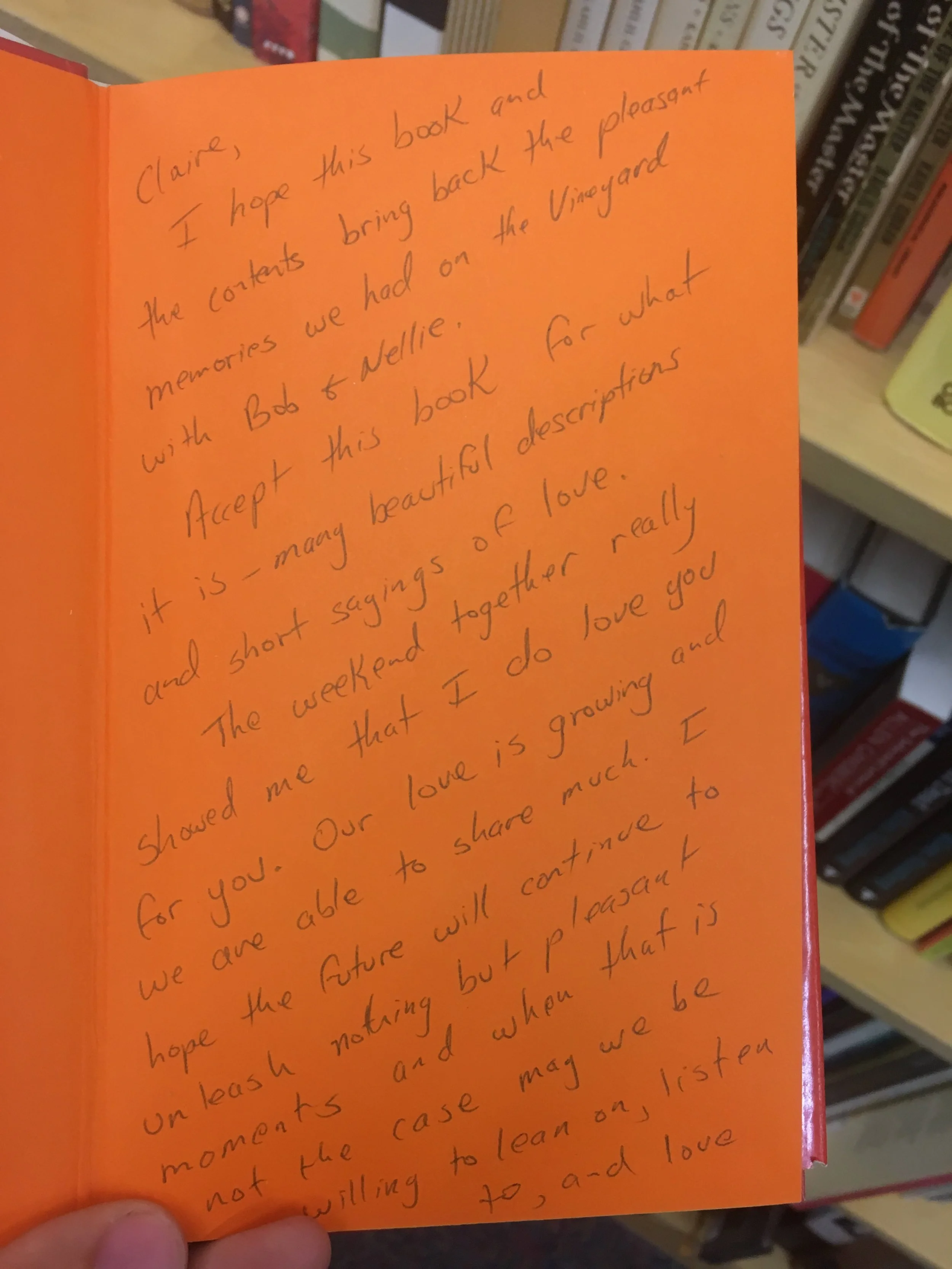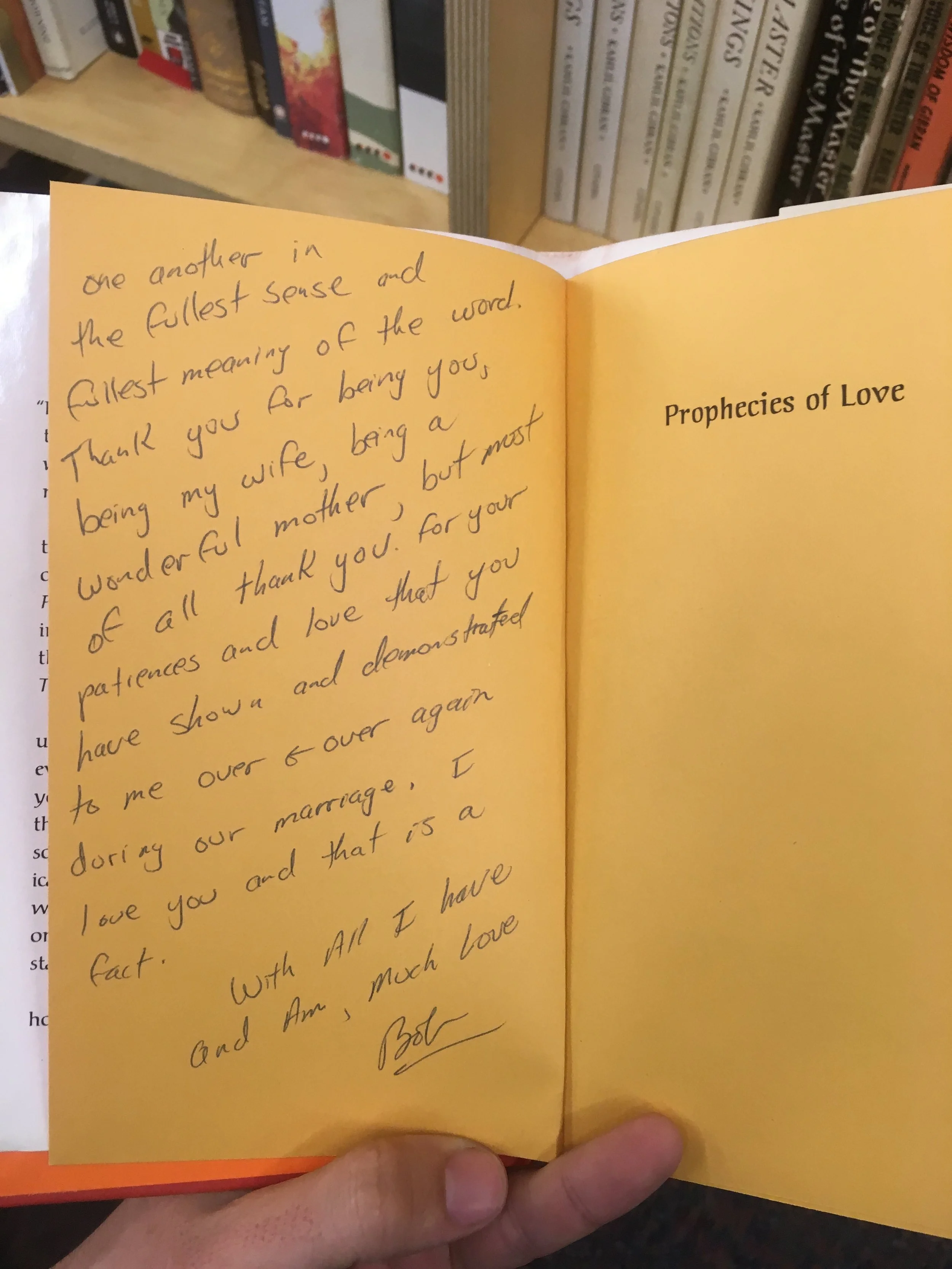I saw this movie for the first time in 2009 when I was 16, and I knew immediately that motion picture would shape the way I would see the world for the rest of my life.
Gratitude 3/17/23
Grateful that it’s the end of my first week back and that I got through it despite being sick. Grateful that we always get through it, although we never think we will. Grateful for the cold oat straw infusion that is infusing the air, water, and sun of the earth into me. Grateful for The Book of Delights and going out of one’s way to find delightful moments (like picking up this book for 4 minutes each morning). Grateful to wake up to a clean kitchen where my countertops are clean. My kitchen table is a still-life of my mind— last night it had bills, 1099s, Tupperware, and flower petals. Today it is empty. Grateful to get asked out on a date this weekend and to share in good food. Grateful to be in love with the woman who’s taking me on that date (she knows, it’s not a secret). Grateful to breathe, grateful to be here. Grateful to feel free.
how to bear the unbearable
“To be broken is no reason to see all things as broken. This is the trick to staying well, isn’t it: to feel the sun even in the dark. To not lose the truth of things when they are out of view. To grow just the same. To know there is still water, even when we are thirsty. To know there is still love, even when we are lonely. To know there is still peace, even when we are suffering."
-Mark Nepo
finding it again









I am always drawn to the skaters. Certainly there’s a nostalgic pull, a remembrance of my teenage years where, for the first time, I was allowed to roam the streets with friends or escape into my own world. But there’s something semi-sacred happening as well. A loosening of the body. A dramatic movement of the limbs as one’s center of gravity hurls forward. The body’s adjustments in the name of balance. The humbling (a pebble once sent me so hard into the concrete I thought I cracked my hip).
It’s a dance, truly, and not a type of vulnerability that’s normally seen in adolescent teenage boys. Skateboard Photography is it’s own unique subsection of Street Photography. It’s random, but it’s also a performance. It’s mostly failures. It’s gritty. It’s a challenge against one’s self, and yet it’s a community. An outcasted community. Because who in their right mind would choose to sacrifice balance, for the mere sake of finding it again. Who would trust themselves that much?
Or maybe I just like photographing people who are finding it again.
neither
Review: Fleishman is in Trouble
Fleishman is in Trouble is about a newly middle-aged man, Toby Fleishman (Jesse Eisenberg), who has recently gotten an overdue divorce from Rachel Fleishman (Claire Danes). Toby wakes up one morning to find that his two preteen children have been dropped off at his apartment early in the morning by his ex-wife, Rachel, with no explanation. Toby, looking forward to experiencing his new single life, irately calls her, wondering what she was thinking handing off the kids during her week with them. Rachel doesn’t respond that day. Nor the next day, or the one after that. Little by little, and then all the sudden, Rachel has disappeared from both Toby and his children’s lives.
Where is Rachel Fleishman? I think it’s fair to say this show belongs somewhat in the Mystery genre, although ultimately not the one you thought you needed. The story of a missing Rachel Fleishman carries the viewer through most of the show, but doesn’t turn out to be the question that the viewer wants answers to. This is a story of something much deeper. It’s a story about stories.
The show has a sophisticated creative direction that feels as if The New Yorker would have written it. It’s a tale about the upper class in Manhattan, yet its clean and beautiful narration makes it feel relatable. Toby Fleishman reunites with two of his college friends, people who he hasn’t been close with during his dozen years of marriage. There’s Libby, the bored housewife who lives outside the city and feels largely like she gave up her career as a writer and the life she wanted to live. And there’s Seth, the bachelor who chases money and women, and who has a child-like bluntness about him. And of course, there’s Toby, newly divorced, a father of two, and the head Hepatologist at a hospital.*
Toby is combing through the memories of his failed marriage with Libby and Seth, trying to solve the mystery of Rachel’s whereabouts, but more importantly the mystery of how things went so wrong. How the person he loved became the person (that represented the things) he resented. His ex-wife, Rachel, becomes the antagonist because we’re hearing Toby’s side of the story. The show explores how Truth is something we hold together, yet never fully agree upon. As Schroedinger’s equation shows, the truth is both correct and subjective, depending on one’s perspective. Each episode begins with a drone shot of New York City, but flipped upside down. At first I took it as an undisguised metaphor for Toby’s life being flipped upside down, but as I continued watching, it turned into a symbol of the many ways to experience reality.
Fleishman Is In Trouble is also a show about death. Death of relationship, of potential, of youth. The paradox of the Moment that is both endlessly passing us by, yet infinitely here. Something we are always in (at our best) or yearning for (at our worst). The past is something we feel as if we have control over, likely because we can nip and tuck, relight, and rewrite the ways in which things happened. The future is dark—not in a morose way, but more in an overwhelmingly possible way, like a room of Vantablack, a lightless void you must walk into blindly. Neither the past nor the future are places to create yourself, yet we so often convince ourselves that we can make a home there. As much as this show is about death, it’s also about growth. We see Toby’s character become a better father, friend, doctor, and human being. In fact, there’s growth in each of the characters.
If you’re wondering how a show about wealthy New Yorkers could be relatable, the perspective actually proves its point: No amount of money or stability can stop life from moving forward. We live, we lose, we change, and we adapt. No matter one’s status.
This show was never really about Rachel Fleishman’s whereabouts (although this is answered). Fleishman is in Trouble is about continually finding one’s self, remembering that potential is the enemy of presence, and that without others’ perspectives, we are unable to find compassion. And a life without compassion, is a narrow life indeed.
5/5
* Note the irony of these roles being played by Jesse Eisenberg (The Social Network) Lizzy Caplan (Mean Girls) and Adam Brody (The O.C.), who seem to have not aged in their 20+ years of acting.
I'm glad i see the world the way i do
I woke up to 7 rolls of scanned film in my inbox and I’m blown away. The life I get to live, the people I surround myself with, and my instinct to capture the moments in the way that I do. I couldn’t be more proud of myself. I’m glad I see the world the way I do.
Photos coming…
you look at the tree and you allow it
“When you go out into the woods, and you look at trees, you see all these different trees. And some of them are bent, and some of them are straight, and some of them are evergreens, and some of them are whatever. And you look at the tree and you allow it. You see why it is the way it is. You sort of understand that it didn’t get enough light, and so it turned that way. And you don’t get all emotional about it. You just allow it. You appreciate the tree.
The minute you get near humans, you lose all that. And you are constantly saying ‘You are too this, or I’m too this.’ That judgment mind comes in. And so I practice turning people into trees. Which means appreciating them just the way they are.”
Ram Dass
Self Devotion
“You have so much self discipline.”
“It’s not discipline, it’s devotion.”
losing ourselves
short sayings of love
Found on the inside of a book cover at the used book store
the floorboards
Sometimes love feels like the momentous, impassioned act itself, and sometimes love is the floorboards and the nails that make up the stage for which life happens on. The latter has always scared me— it’s so forgettable, the stage… the stage that’s there when the actors take their bow, the stage that’s there when the curtains close, when all go home. When all are already home.
covered with stars
my first poem
Circa 2000
thirty








It feels tempting on birthdays, especially at the edge of a decade, to reminisce on achievements. All the big moments. Artistic achievements, professional milestones, countries visited. Quantification. But today I feel grateful for the small moments. Particularly ones where I felt connected to the person in front of me, or the land under my feet. There’s no easy and clean way to bring these memories back, because truthfully they are mostly forgotten (there were millions of them, after all). But those moments are what became my twenties, and it’s safe to say they will be thirties and my forties and so on. That’s all for now. I’m going to see some people that I love.


